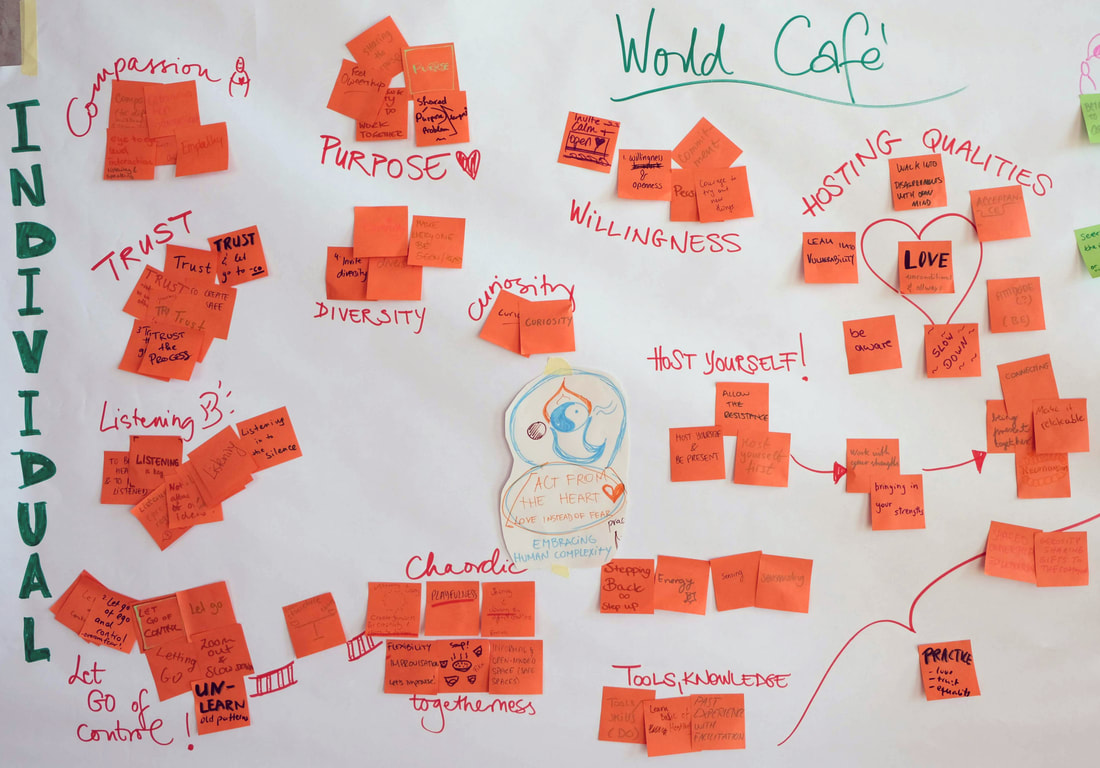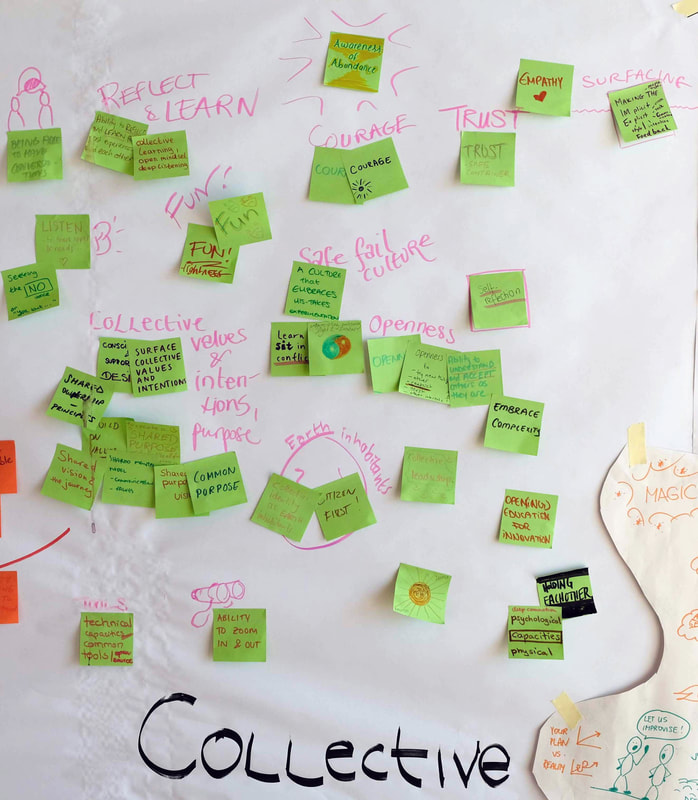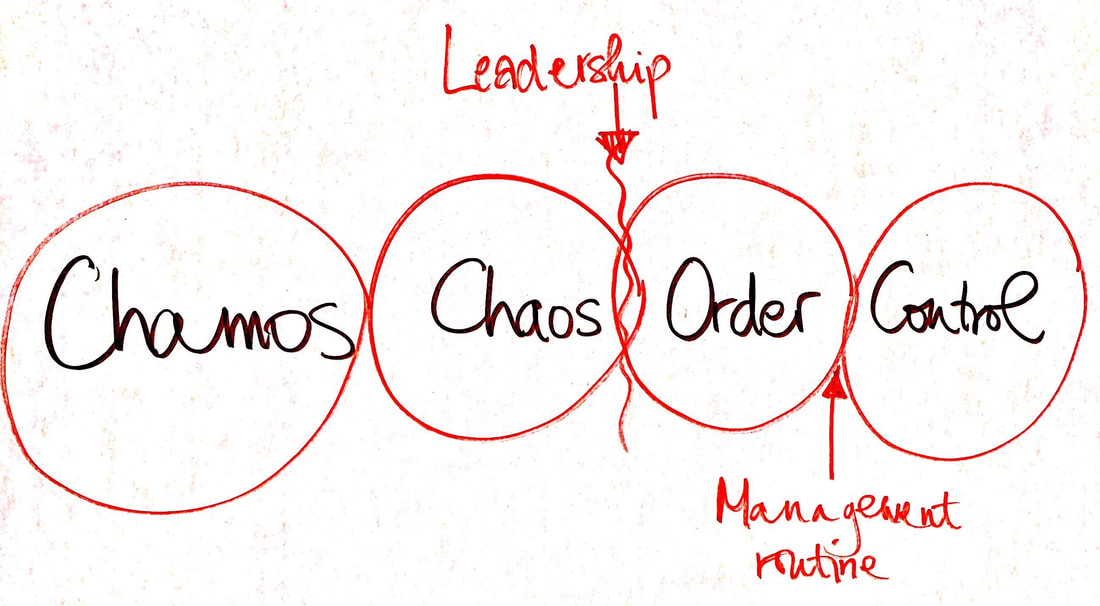Flow
Gallery |
Story of Day 1
|
A strong feeling of connection and empathy is unavoidable. Hosting others by listening to their stories and actively contributing by determining what conditions help make the shift to another mindset makes the conversation strongly meaningful. We leave the exercise with the feeling of having shared something and being more aware of what can help us to create the best conditions to reach our objectives; to find out what works.
Circle was the last methodology explored on our journey towards the bottom of the sea. Another surprise emerges from this approach: as a more reflective experience, and where one is encouraged to take time to think and is free to choose when to speak, we experience another approach of communicating to reach a common purpose. The circle is self-organized, generous, and one should ask and offer. The focus of each participant is on the purpose that the circle wants to reach, and we don’t seek to answer to one another. If one follows the invitation of the methodology to step in with empathy, compassion, intention and attention, you’re guaranteed to leave the circle with the feeling of excitement and gratitude.
We end off with a check out that brings us back up on the shore for some breathing over night. We’ll be doing even more diving tomorrow, and for that, rest is needed.
Circle was the last methodology explored on our journey towards the bottom of the sea. Another surprise emerges from this approach: as a more reflective experience, and where one is encouraged to take time to think and is free to choose when to speak, we experience another approach of communicating to reach a common purpose. The circle is self-organized, generous, and one should ask and offer. The focus of each participant is on the purpose that the circle wants to reach, and we don’t seek to answer to one another. If one follows the invitation of the methodology to step in with empathy, compassion, intention and attention, you’re guaranteed to leave the circle with the feeling of excitement and gratitude.
We end off with a check out that brings us back up on the shore for some breathing over night. We’ll be doing even more diving tomorrow, and for that, rest is needed.
World Café
Question Round 1: What are my experiences of co-creation and what capacities support me in that?
Question Round 2: What collective capacities do we need to cultivate in order to co-create in our communities and organizations?
Question Round 3: What is the Earth asking from her human inhabitants?
The Chaordic Path
Appreciative Inquiry
Question: Tell about a time when you adopted a practice (either for yourself or as a team) that made a real difference?
Harvest: What conditions made a real difference?
Harvest: What conditions made a real difference?
(download the original photo here)





